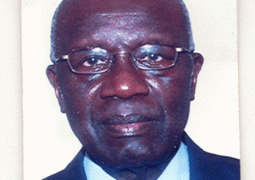The struggles of our compatriots in Italy have continued unabated as the majority of them in that European country have been facing a hard time.
Reports have again let us know that the majority of Gambians who work in Italy are mostly without any sort of formal contract, paid less and under unfavourable working conditions.
It has also been reported that “many Gambians work as farmer labourers under worse conditions than that of The Gambia. They use their labour without any modern implements to ease their work.
“They climb trees to pluck fruits and spend the whole day under the sun plucking tomatoes for a sum that is too little too low.
“When they are injured during the course of work, it becomes their sole problem without compensation or any other help to seek medical assistance.”
This condition being endured by our compatriots in Italy is horrible, to say the least.
While European leaders are meeting to see how they could mitigate the problem of illegal migration to Europe, it must be said that the ultimate decision of migrating to Europe or not lies in the hands of the migrants, including our Gambian compatriots.
With all they are now going through in Europe, they should be able to decipher where is better for them between Europe and Africa (The Gambia).
“We have to live. We have no other job, so we are compelled by situations here to do what is available,” a 28-year-old Gambian youth said.
It sounds as if most of them believe that they have reached a point of no return; so they must do whatever it takes to survive.
However, the fact remains that unemployment rate in Italy has continued to rapidly increase.
“Unemployment rate in Italy averaged 9.27 per cent from 1983 until 2015, reaching an all-time high of 13 per cent in November of 2014, according to the National Institute of Statistics (ISTAT), which reports unemployment in Italy.
It is also true that for most people it is dire conditions at home that have forced them to seek greener pastures.
However, the decision to continue to stay in Italy to work under such harsh conditions as reports indicate lies in the hands of the migrants, who bear the brunt of the enslavement and hardship they are subjected to in Italy and by extension Europe.
“ I do a lot of decision making before each shoot.
It’s a luxury to be able to choose what you do.”
Mario Testino



